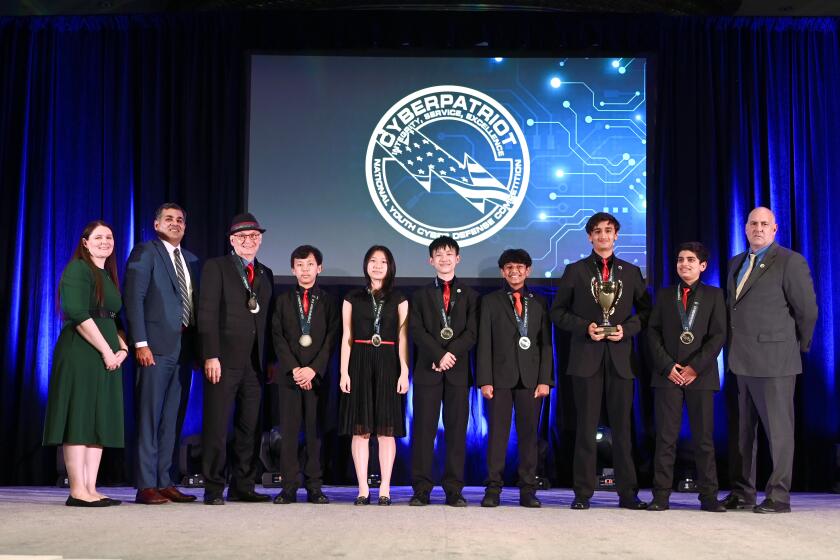Politicians: Solve economic woes to have city, state, national recovery
By Elizabeth Marie Himchak
Budgetary problems at the city, state and national level dominated the third annual year-end update from three of the area’s political representatives.
City Councilman Carl DeMaio in person, and Assemblyman Nathan Fletcher and Congressman Duncan D. Hunter via phone, spoke to 126 Conservative Order of Good Government members and luncheon guests on Dec. 13 in Rancho Bernardo.
Early in his presentation, DeMaio thanked those present for being among the 115,991 San Diegans who placed valid signatures on a pension reform ballot measure for the June 2012 election.
“The labor unions circled their wagons, but you stepped up and collected signatures,” DeMaio said, describing some advertising tactics employed by reform opponents. “There were big guys intimidating little old ladies.”
He said, “Reform is exactly where it should be. In the hands of the voters.”
According to DeMaio, one-third of petition supporters were Republicans, with each of the other thirds being Democrats and Independents.
“You can’t get more bipartisan than that,” he said, later adding “Labor unions ... only win if our community stays out of the game. ... (If) you stay on the sidelines.”
DeMaio highlighted some successes over the past year — such as some city projects finally going through the managed competition process — and said his three focuses for his last year on the council are pensions, potholes and prosperity.
Fletcher said part of the state’s budgetary woes are due to a “broken political environment.”
He said decimating education and public safety spending is not the cure, nor is it increasing taxes on businesses.
“We have to rethink how to do things,” Fletcher said, adding the key is making legislative changes that encourage private sector job growth. These include streamlining regulations and creating a tax environment in California that makes it competitive with other states.
Also necessary is education reform, he said, explaining there are thousands of engineering jobs available in San Diego, but not enough trained individuals to fill them.
Instead of truly reforming state government spending, Fletcher said his colleagues in Sacramento are making cuts that are “political posturing to set the stage for the election next year.”
Hunter spoke of the need to extend the payroll tax credit because if it does not continue, it means taxpayers will lose an average of $1,000 next year in take-home pay.
He blamed inaction on 27 bipartisan bills passed by the House but languishing in the Senate on Senate Majority Leader Harry Reid. Duncan said for change to happen in Washington, Republicans need to take control of the Senate, something he said could be more crucial than a Republican winning the presidency for job-creation bills to pass.
Among Hunter’s focuses for the coming year are creating economic conditions that encourage job growth in the private sector and having different regulations for small businesses trying to get established instead of holding them to the same rules as large corporations.
“(Small businesses) should not be held to the same (regulations) as Goldman Sachs or Prudential,” Hunter said. “We need to make it easier for small businesses to start up and stay in business.”





